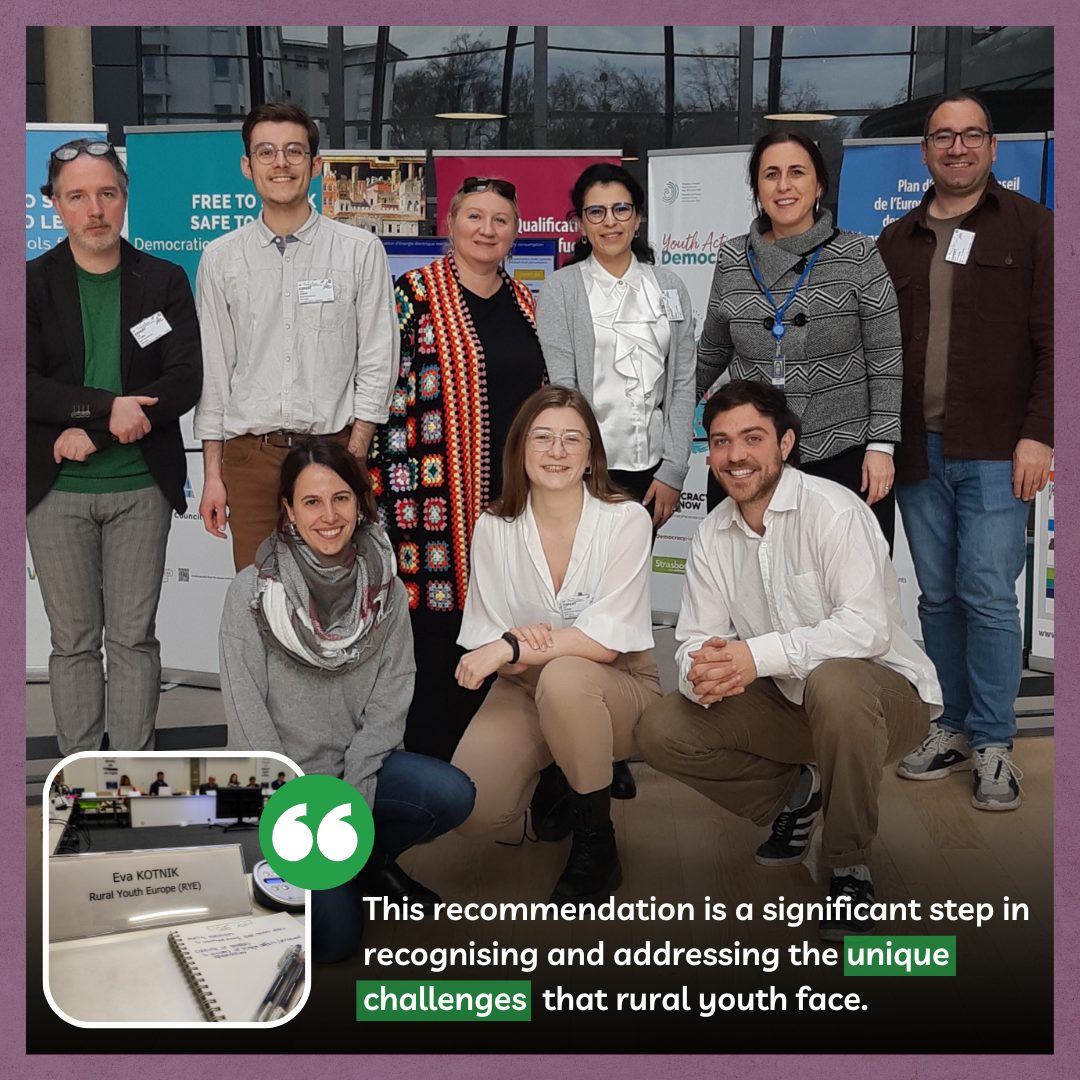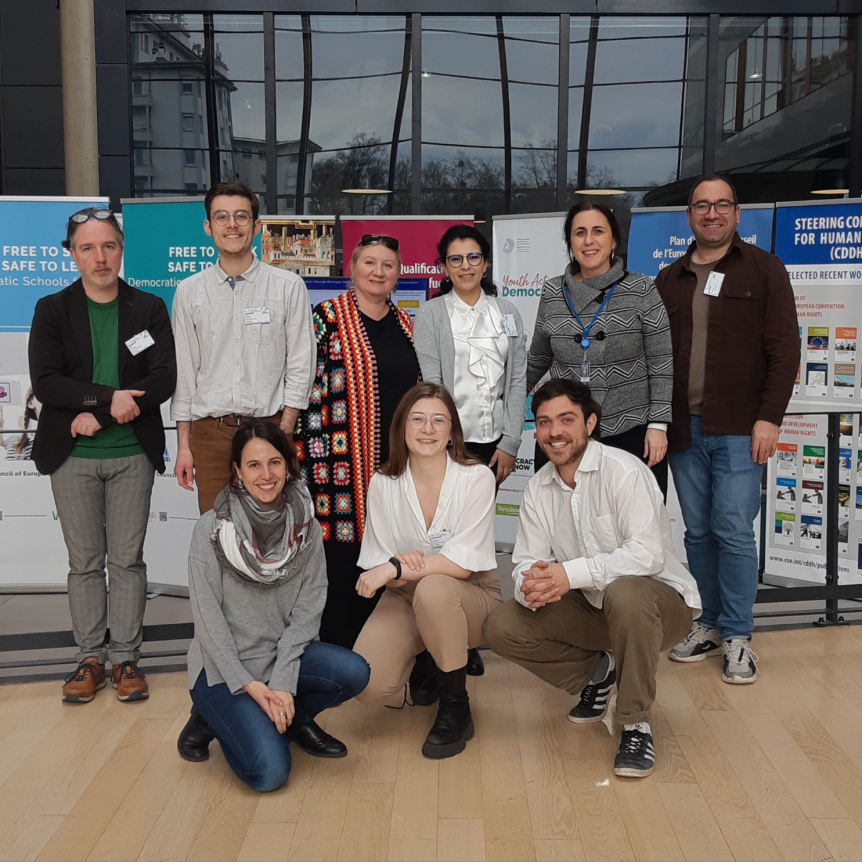At the start of this year, Eva Kotnik from Slovenia started her mandate in the Advisory Council on Youth at the Council of Europe, representing Rural Youth Europe.
She says: “Growing up on a farm and working with rural youth organisations, I’ve developed a deep passion for advocating for rural youth and am strongly committed to ensuring their meaningful participation in the policy-making process. I’m eager to continue this work in the Advisory Council, building up on the work of the previous mandate.
Eva is also part of the group that is responsible for preparing a Committee of Ministers recommendation on Rural Youth, who also met in Strasbourg in February.
The draft recommendation aims to bridge a significant policy gap at the European level, focusing on promoting youth engagement, strengthening youth structures, creating economic opportunities, and improving access to essential rights like education in rural areas.

Eva adds: “The recommendation on rural youth is deeply important to me, both personally and professionally. This recommendation is a significant step in recognising and addressing the unique challenges that rural youth face, with the goal of boosting their social, economic, and political participation.
“My role in the drafting group is an opportunity to help shape a document that I believe will make a real difference in making young people in rural communities feel included and actively engaged. It’s about opening up opportunities for their voices to be heard and for their dreams to be achieved, which perfectly aligns with the broader objectives of the Youth Sector Strategy 2030.”
During the two-day meeting, the group focused on the content of the recommendation, engaging in discussions on the unique challenges experienced by young people in rural areas and brainstorming on possible steps and measures that member states could take to address them.

Eva is excited to be involved in creating a document that focuses on getting young people in rural communities more involved, as part of the Council of Europe’s (CoE) Youth Sector Strategy.
She adds: “I believe it’s crucial to acknowledge the joint efforts of the EU-CoE partnership in this field; for example, the study ‘Young people in rural areas: diverse, ignored and unfulfilled’ really points out the unique challenges rural youth face. It shows a big gap: “most youth policies ignore the rural, and most rural policies ignore the youth.” This is why I find the recommendation on rural youth so important!
“We need an evidence-based policy focused on rural youth, and if we want to understand their lives, aspirations, and needs, comprehensive youth research is the first step in tailoring policy to their specific requirements. Even though the study indicates that the primary responsibility for generating local change lies with local public authorities, I firmly believe in the need to advocate for rural youth at national and international levels as well.
“Overall, the start of my mandate and the induction meeting have been incredibly insightful. Meeting the entire team of 30 new Advisory Council on Youth members has been really motivating. It’s an exceptional chance to connect with individuals who are passionate about making a real difference for young people across Europe. The induction course offered us a detailed understanding of our responsibilities, laying a solid groundwork for our future efforts.”


